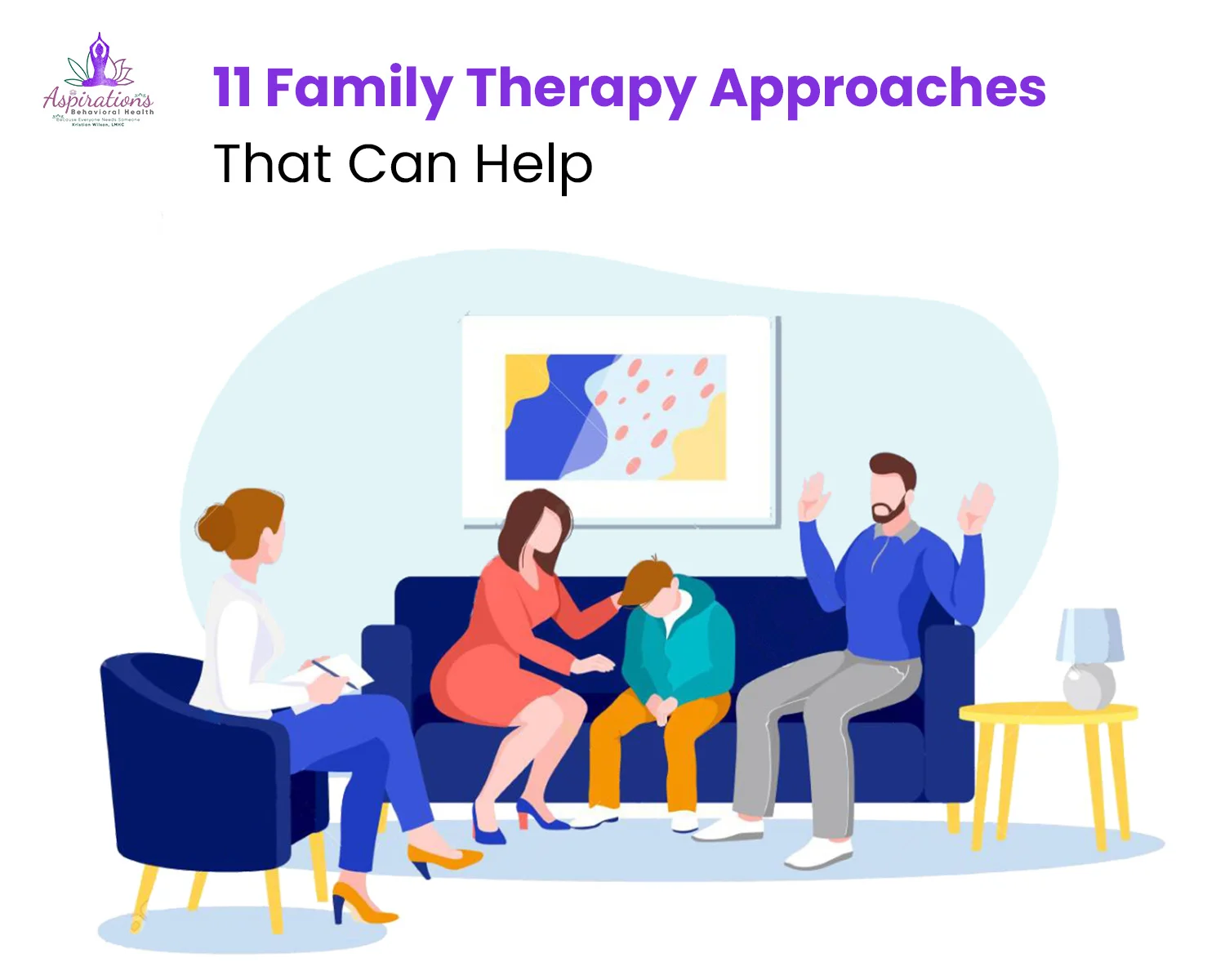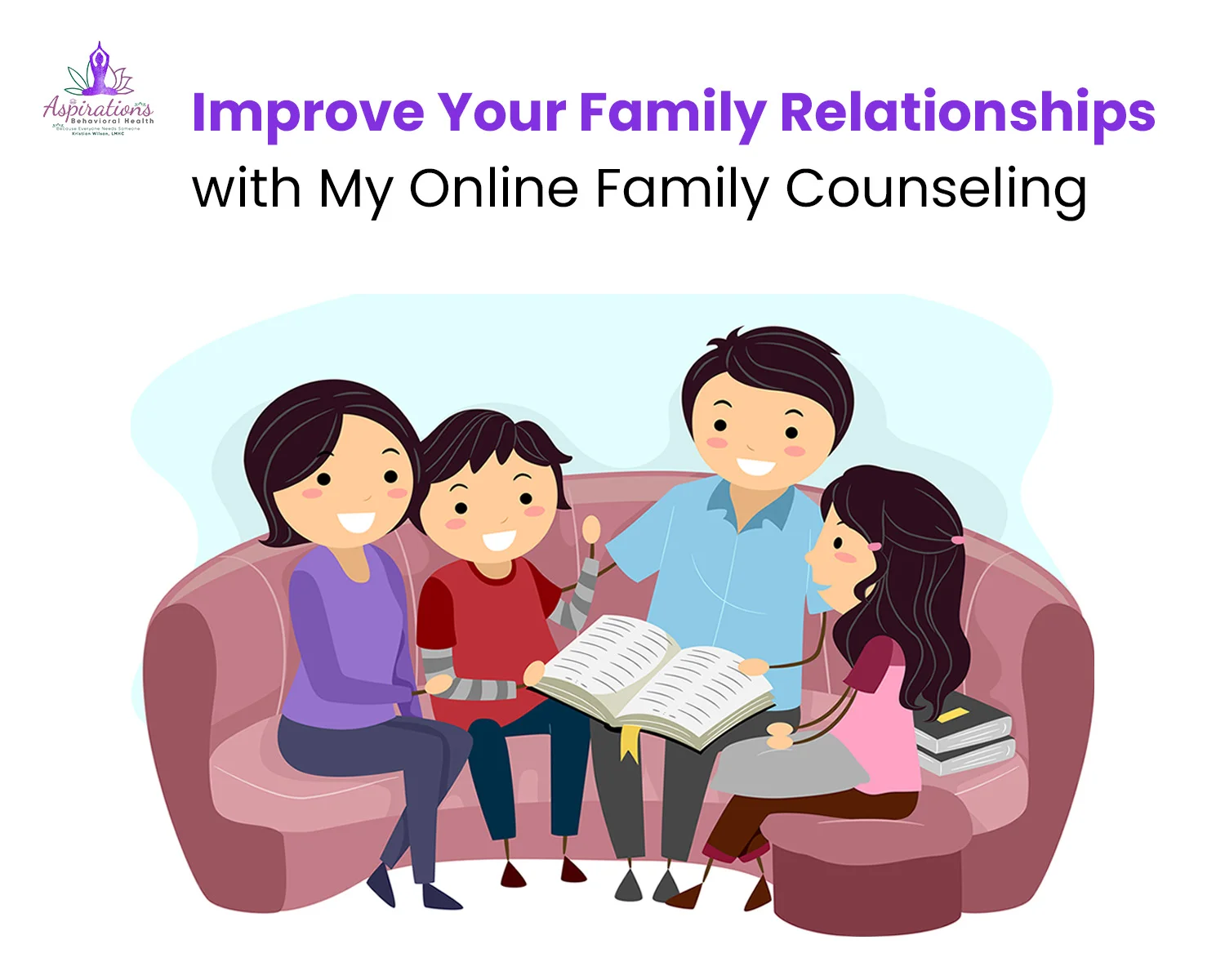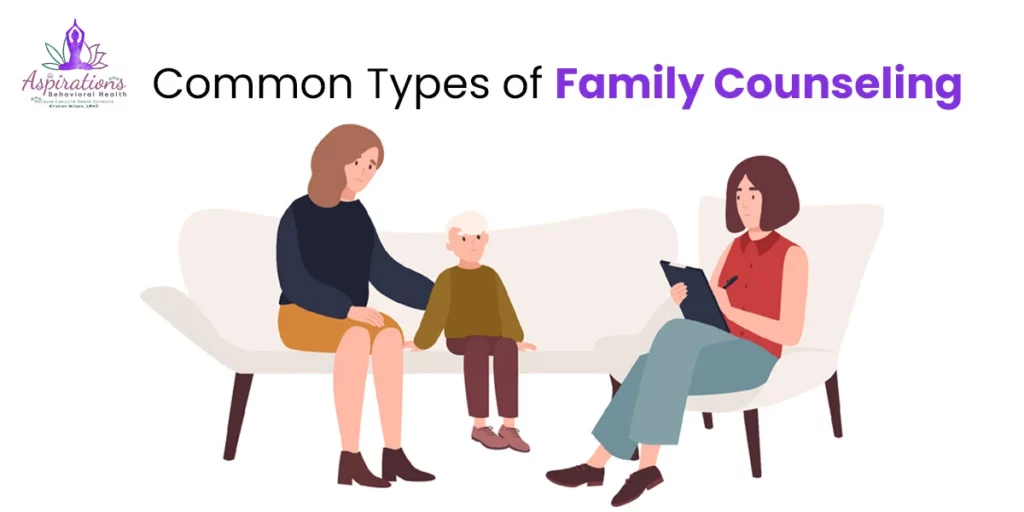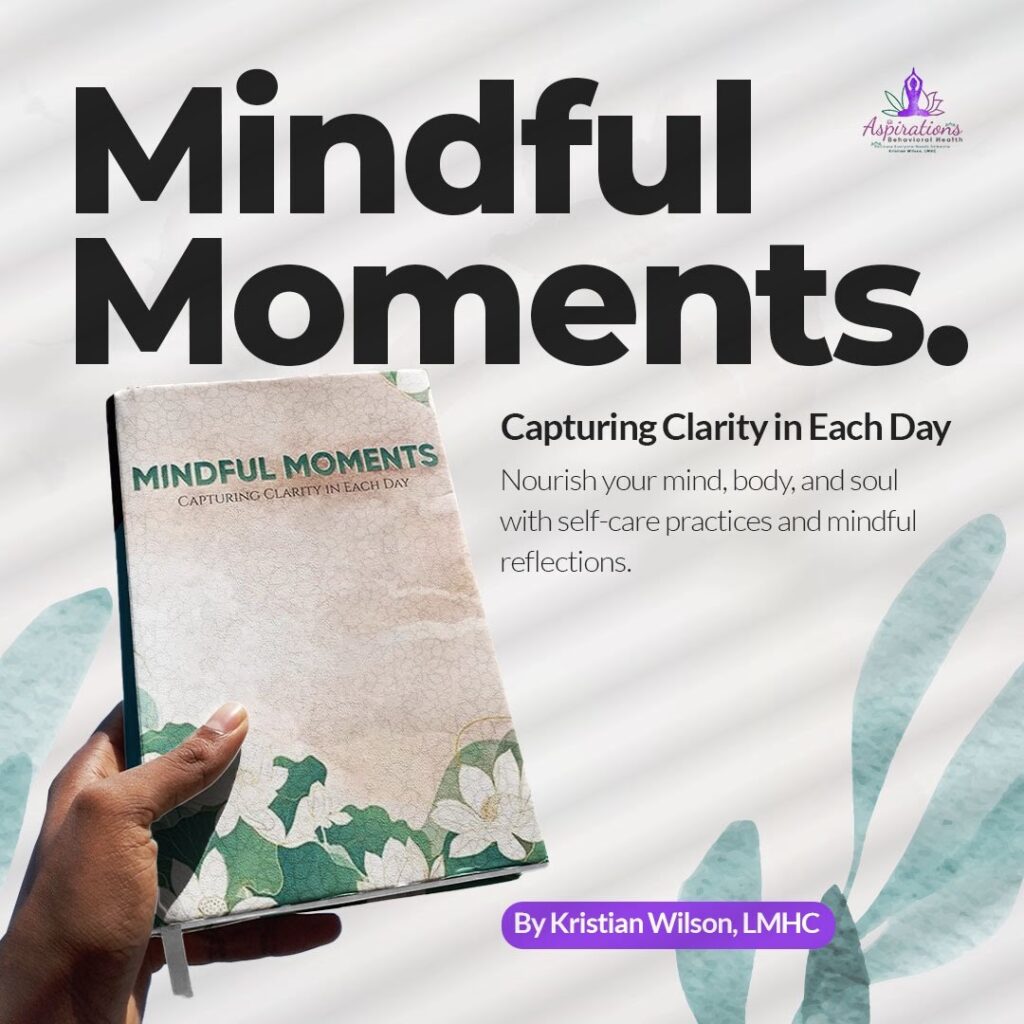If you are looking for ways to improve the relationships within your family, consider family counseling. Family counseling, or family therapy, encompasses various approaches to help families strengthen bonds, resolve conflicts, and enhance communication. From marriage counseling to child and adolescent counseling, family therapy can address specific family dynamics and promote emotional well-being.
During family counseling sessions, a therapist works with the family to identify and address issues affecting their relationships. Through various techniques and approaches, families can learn practical communication skills, resolve conflicts, and build healthier relationships.
Takeaway
- Family counseling encompasses various approaches to help families improve relationships.
- Family therapy can address specific family dynamics and promote emotional well-being.
- During family counseling sessions, a therapist works with the family to identify and address issues affecting their relationships.
- Families can learn practical communication skills, resolve conflicts, and build healthier relationships through family counseling.
- Family counseling is beneficial for improving overall family dynamics and emotional well-being.
11 Family Therapy Approaches That Can Help
 Family counseling isn’t just about group therapy sessions. Individual therapy is a vital component, too. Mental health counseling is an individual therapy that can help family members develop coping skills, discuss personal concerns, and promote mental well-being. Here are the 11 Family Therapy Approaches That Can Help individuals and, collectively, whole families.
Family counseling isn’t just about group therapy sessions. Individual therapy is a vital component, too. Mental health counseling is an individual therapy that can help family members develop coping skills, discuss personal concerns, and promote mental well-being. Here are the 11 Family Therapy Approaches That Can Help individuals and, collectively, whole families.
1. Strategic Family Therapy
Family therapy sessions allow teenagers and their family members to work together to address conflicts and improve relationships. Through these sessions, families can learn to recognize and overcome negative behavior patterns and develop healthier ways of interacting with one another. A family therapist near me can provide support and guidance throughout the counseling process.
Family therapy techniques used in counseling for teens can vary depending on the family’s specific needs. Some techniques may include role-playing exercises, communication skills training, and conflict-resolution strategies. The goal is to improve understanding and communication within the family unit, and these techniques can effectively achieve that goal.
2. Functional Family Therapy
- Strengths-Based Approach: Functional Family Therapy (FFT) emphasizes identifying and building on the strengths within the family, focusing on positive aspects to foster growth and resilience.
- Targeted Problem Solving: FFT addresses specific issues within the family unit, employing problem-solving strategies to effect positive change.
- Behavioral Change: The therapy often involves behavioral interventions, aiming to modify problematic behaviors by understanding their function within the family system.
- Systemic Perspective: FFT considers the family as a whole, exploring how individual behaviors contribute to overall family dynamics and vice versa.
- Short-Term and Intensive: Typically, FFT is a short-term, intensive intervention focusing on achieving
measurable outcomes efficiently within a limited timeframe.
3. Marriage counseling/couples therapy
Marriage and relationship counseling are integral to family counseling and help couples navigate challenging times. Whether dealing with communication difficulties, conflicts, or trust issues, a family counselor or therapist can provide guidance and support to help couples build a healthier relationship.
With the help of a family counselor, couples can learn practical communication skills, resolve conflicts, and strengthen their bond. Family psychotherapy is also utilized to identify and address underlying issues that may be affecting the relationship. This type of counseling can help couples promote emotional well-being and improve overall relationship satisfaction.
4. Structural Family Therapy
- Structural Family Therapy, pioneered by Salvador Minuchin, focuses on restructuring family dynamics to address issues.
- Therapists examine family roles and hierarchies, identifying patterns contributing to problems.
- Techniques involve boundary setting, realigning power structures, and restructuring interactions.
- The goal is to establish healthier family functioning by reshaping the way members relate to each other.
- This approach effectively addresses power imbalances, communication challenges, and structural issues within the family unit.
5. Systemic Family therapy
- Systemic Family Therapy views the family as an interconnected system, where each member’s behavior impacts the whole.
- Therapists analyze how family dynamics contribute to issues and explore ways to create positive change.
- Techniques include circular questioning, examining family patterns, and fostering systemic thinking.
- The focus is on understanding the systemic nature of problems and finding solutions that benefit the entire family.
- This approach is beneficial for addressing communication breakdowns, conflicts, and relational challenges.
6. Narrative Family therapy
- Narrative Family Therapy centers on reshaping individuals’ narratives about themselves and their families.
- Therapists collaborate with clients to explore and rewrite the stories they tell about their lives.
- Techniques involve externalizing issues, identifying strengths, and reconstructing narratives for empowerment.
- The goal is to shift perspectives, foster resilience, and promote positive change.
- This approach is practical for addressing identity-related issues, coping with challenges, and creating empowering narratives for family members.
7. Transgenerational Family Therapy
- Historical Exploration: Transgenerational Family Therapy delves into the family’s history, uncovering patterns and dynamics that may have originated generations ago.
- Generational Impact: This approach explores how behaviors, traumas, and unresolved issues can be transmitted across generations, influencing the family’s present dynamics.
- Genogram Utilization: Therapists often employ genograms, visual representations of family structures, to trace family patterns and identify connections between past and present.
- Healing Through Understanding: By understanding the roots of familial challenges, Transgenerational Therapy aims to break negative cycles and promote healing within the family system.
- Intergenerational Dialogue: The therapy encourages open dialogue between different generations, fostering understanding and creating a platform for addressing historical influences on current family dynamics.
8. Communication theory
Communication is a crucial aspect of any family dynamic, but it can be challenging for young individuals to express themselves effectively. Child and adolescent counseling provides a platform for children and teenagers to communicate their feelings in a safe and non-judgmental environment. Additionally, family counseling for children can help parents and guardians understand their child’s perspectives better and improve communication within the family.
In family counseling, communication is a central focus. Therapists work with families to improve their communication skills, helping them to express their thoughts and feelings more effectively. This can enhance understanding among family members and promote healthier interactions.
9. Multisystemic Family Therapy
- Holistic Approach: Multisystemic Family Therapy (MFT) views individuals within the context of their various systems, considering family, school, and community dynamics.
- Community Integration: MFT involves collaboration with community resources, emphasizing the importance of a broader support network.
- Targeted Intervention: This approach often targets specific behaviors to address and modify them within the multiple systems that influence an individual’s life.
- Empowerment Focus: MFT empowers families by involving them in decision-making, fostering a sense of responsibility and active participation in the therapeutic journey.
10. Intergenerational Family therapy
- Generational Dynamics: Intergenerational Family Therapy explores how patterns and dynamics are passed down through generations, aiming to break harmful cycles.
- Family Tree Exploration: Therapists often use genograms to visually map family relationships, highlighting recurring themes and exploring their impact.
- Communication Enhancement: The focus is improving communication patterns and understanding how past family experiences influence current interactions.
- Systemic Change: Intergenerational Therapy seeks to create systemic and lasting change within the family unit by addressing generational issues.
11. Psychoeducation
- Knowledge Empowerment: Psychoeducation involves providing families with information about mental health, communication, and coping strategies to empower them in understanding and managing challenges.
- Skill Building: Families are taught practical skills to enhance communication, problem-solving, and coping mechanisms, promoting a healthier family dynamic.
- Normalization of Struggles: Psychoeducation helps families understand that many challenges are expected, reducing stigma and creating an environment where seeking help is normalized.
- Preventive Focus: By equipping families with knowledge and skills, Psychoeducation aims to prevent or mitigate the impact of mental health challenges, fostering resilience and well-being.
Improve Your Family Relationships with My Online Family Counseling
 Online counseling services have become increasingly popular due to their convenience. Families can now engage in counseling sessions from the comfort of their homes at a time that suits them best. Online counseling sessions can be conducted via video calls or chat platforms, offering a range of strategies and techniques that can be customized to meet the needs and goals of each family.
Online counseling services have become increasingly popular due to their convenience. Families can now engage in counseling sessions from the comfort of their homes at a time that suits them best. Online counseling sessions can be conducted via video calls or chat platforms, offering a range of strategies and techniques that can be customized to meet the needs and goals of each family.
With a bachelor’s degree from the University Of Florida and a master’s from Webster University, I am a professional whose primary focus is improving individuals’ mental health, addiction, and community support needs. With my best practices and therapy, I desire to help those in need. Our motto at Aspiration’s Behavioural Health is that everyone needs someone. Thus, speaking up now is better than keeping the storm inside you brewing and brewing. Get in touch with me
right now and benefit from professional help.
Aspirations Behavioral Health offers a wide range of services, including:
Online Individual Consultation And Coaching
Online Child And Adolescent Therapy
FAQs About Types of Family Counseling
What are the fundamental concepts of family counseling?
Family counseling fosters open communication, understanding roles and dynamics, and addressing conflicts within the family unit. Key concepts include systemic thinking, acknowledging the interdependence of family members, and promoting a supportive environment for positive change.
What are family Counselling techniques?
Family counseling techniques encompass a range of approaches. Some common ones include communication exercises, role-playing, genograms to map family relationships, and narrative therapy. Techniques aim to improve understanding, enhance communication skills, and address specific issues affecting the family dynamic.
What is an example of family counseling?
An example of family counseling could involve a family seeking guidance to navigate a challenging transition, such as a divorce or the arrival of a new family member. The therapist may employ techniques to help family members communicate effectively, understand each other’s perspectives, and work towards a harmonious resolution.
Is family therapy a type of CBT?
While family therapy and Cognitive Behavioral Therapy (CBT) share some principles, they are distinct approaches. Family therapy focuses on the dynamics and relationships within a family, addressing issues collectively. CBT, on the other hand, primarily centers on individual cognitive and behavioral patterns. Family therapy considers the broader family context, whereas CBT is more individually focused.
Conclusion
In conclusion, family counseling can effectively improve bonds, resolve conflicts, and promote emotional well-being within families. From individual therapy to marriage counseling, parent-child therapy to child and adolescent counseling, the various approaches to family counseling offer support and guidance tailored to each family’s unique needs.
Families can learn practical communication skills through counseling sessions, develop coping mechanisms, and strengthen connections. Counselors help families navigate through transitions such as divorce or blending families, manage conflicts, and promote healthy interactions within the family unit.



